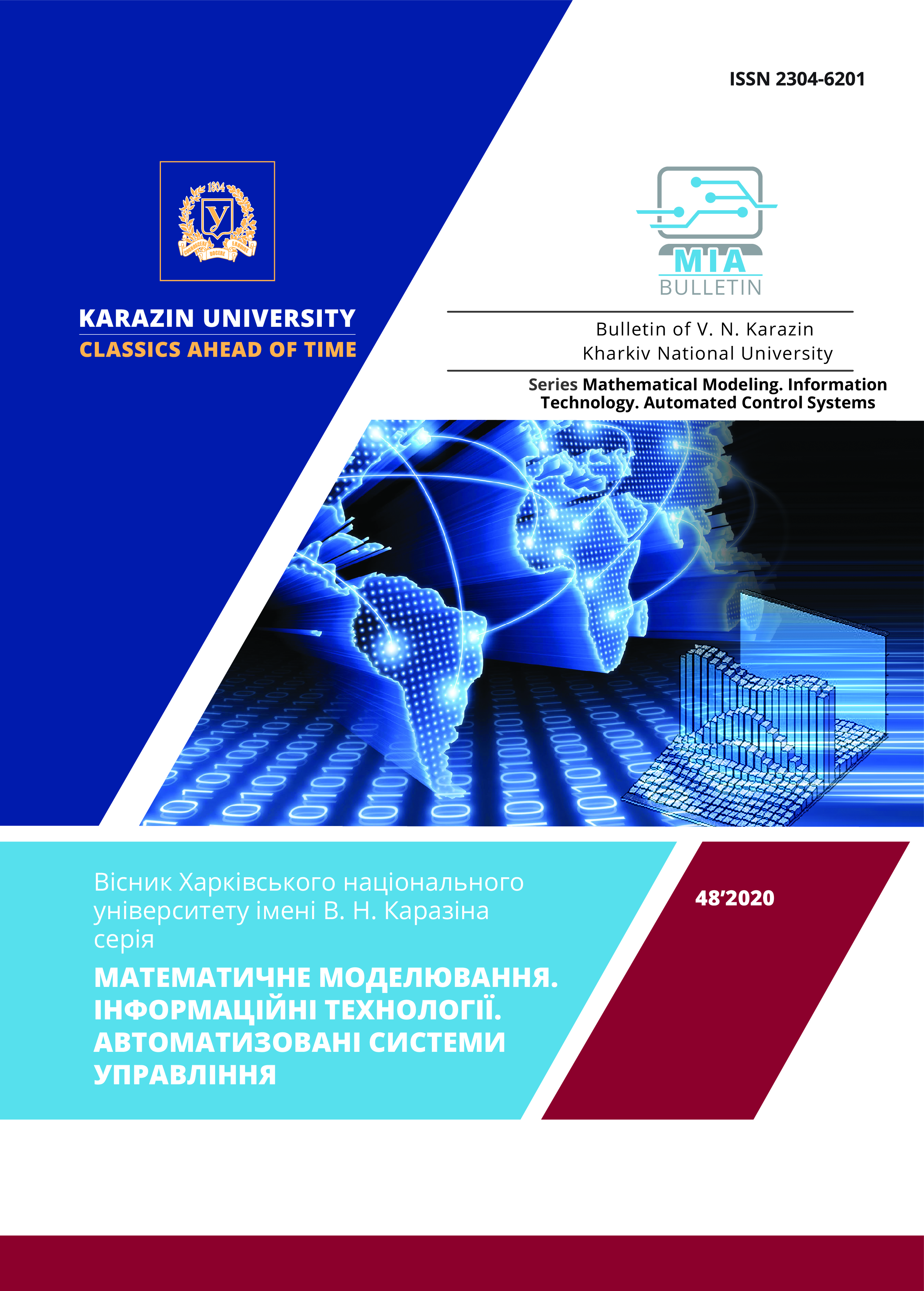Modeling fuzzy management processes of passenger transport systems
Abstract
The main tasks of organizing route transportation when considering processes in transport systems are to ensure a high level of management and the introduction of advanced working methods to meet the needs of the commuters, to ensure the quality of passenger service, to use vehicles of the enterprises’ automobile fleet efficiently, to ensure transportation safety, as well as to reduce the cost of the necessary trips for the population. The main task of the passenger transport management should be the creation of schedules and the rational organization for the routes of vehicles. When looking for new effective methods and tools for managing passenger traffic, aimed at minimizing service time and achieving the maximum level of satisfaction of passengers, it is useful to consider the fuzzy logic methods. These methods provide and implement the mechanism of working with inaccurate concepts, introduce fuzzy sets of input data and allow performing logical actions with them as well as obtaining the final solution of the problem.
While setting the task of integer programming for creating a schedule for a train route, the target function and the system of restrictions on the desired values of unknowns are replaced by the functions of belonging to fuzzy sets, which indicate the average degree of belonging to the selected sets. Finding the values of the variables that are the solution to the problem and grouping them gives us a schedule for the route, which optimizes the target function under given restrictions. As the objective function, namely, the function of belonging to multiple time intervals, which correspond to the fuzzy function of the target in the studies, the numerical expression of the average degree of satisfaction of the needs of passengers is chosen. The time intervals − the average degree of use of vehicles during service during the daily operation of the route is chosen as the system of restrictions on the desired variables. The algorithm for finding a solution space that is the basis for generating a schedule of vehicles on a route in the form of a sequence of service intervals corresponding to variable values has been developed.
The fuzzy objectives of the problem should be subject to the main criterion for creating a traffic schedule and optimal route control. That criterion takes into account the cost of the operation time of vehicles and the cost of waiting time for passengers.
Downloads
References
/References
P.R. Levkovec, M.M. Moroz, and R.V. Kobileckiy, “Improved logistics management of passenger transportation”, Vestnik KDPU, vol. 6(47), 113-115, 2007. http://www.kdu.edu.ua/statti/2007-6(47)/113.pdf [in Ukrainian]
A. Ceder, “Planning and Evaluation of Passenger Ferry Service in Hong Kong”, Transportation, vol. 33, p. 133–152, 2006. https://www.worldtransitresearch.info/research/2324
A. Ceder, S. Voß, & J. Daduna, “Efficient Timetabling and Vehicle Scheduling for Public Transport. Computer-Aided Scheduling of Public Transport”, Lecture Notes in Economics and Mathematical Systems, vol 505, 37-52, 2001. https://doi.org/10.1007/978-3-642-56423-9_3
P.F. Gorbachov, E.V. Lyubiy, “Modeling the demand for transportation of the population of small towns by route passenger transport: monograph”, Kharkov: KhNADU, 2014. https://scholar.google.com.ua/citations?user=aOVv_AoAAAAJ&hl [in Ukrainian]
A. Alvarez, S. Casado, J. Gonzalez Velarde, & J. Pacheco, “A computational tool for optimizing the urban public transport”, Journal of Computer System Sciences International, vol. 49(2), 244-252, 2010. https://www.researchgate.net/publication/226909691_A_computational_tool_for_optimizing_the_urban_public_transport_A_real_application
F. Leurent, “Transport capacity constraints on the mass transit system: systemic analysis”, European Transport Research Review, vol. 3: 11-21, 2011. https://doi.org/10.1007/s12544-011-0046-5
Tuin, Marieke S. van der and A. Pel, “The disruption transport model: computing user delays resulting from infrastructure failures for multi-modal passenger & freight traffic”, European Transport Research Review, vol. 12: 1-10, 2020. https://doi.org/10.1186/s12544-020-0398-9
L.A. Zadeh, “Fuzzy sets”, Information and Control, vol. 8(3), 338-353, 1965. https://doi.org/10.2307/2272014
R.E. Bellman, L.A. Zadeh, “Decision-Making in a Fuzzy Environment”, Management Science, vol. 17, 141-164, 1970. https://doi.org/10.1287/mnsc.17.4.B141
Левковець П.Р., Мороз М.М., Кобилецький Р.В. Удосконалення логістичного управління перевезень пасажирів. Вісник КДПУ імені Михайла Остроградського. 2007. Вип. 6 (47). С. 113-115. http://www.kdu.edu.ua/statti/2007-6(47)/113.pdf
Ceder A. Planning and Evaluation of Passenger Ferry Service in Hong Kong. Transportation. 2006. Vol. 33. P. 133–152. https://www.worldtransitresearch.info/research/2324
Ceder A., Voß S., Daduna J. Efficient Timetabling and Vehicle Scheduling for Public Transport. Computer-Aided Scheduling of Public Transport. Lecture Notes in Economics and Mathematical Systems. 2001. Vol. 505. P. 37-52. https://doi.org/10.1007/978-3-642-56423-9_3
Горбачов П.Ф., Любий Є.В. Моделювання попиту на перевезення населення малих міст маршрутним пасажирським транспортом: монографія. Харків: ХНАДУ, 2014. 257 с. https://scholar.google.com.ua/citations?user=aOVv_AoAAAAJ&hl
Alvarez A., Casado S., Gonzalez Velarde J., Pacheco J. A computational tool for optimizing the urban public transport. Journal of Computer System Sciences International. 2010. Vol. 49(2). P. 244-252. https://www.researchgate.net/publication/226909691_A_computational_tool_for_optimizing_the_urban_public_transport_A_real_application
Leurent F. Transport capacity constraints on the mass transit system: systemic analysis. European Transport Research Review. 2011. Vol. 3. P. 11-21. https://doi.org/10.1007/s12544-011-0046-5
Marieke S. van der Tuin, Pel A.J. The disruption transport model: computing user delays resulting from infrastructure failures for multi-modal passenger & freight traffic. European Transport Research Review. 2020. Vol. 12. P. 1-10. https://doi.org/10.1186/s12544-020-0398-9
Zadeh L.A. Fuzzy sets. Information and Control. 1965. Vol. 8(3). P. 338-353. https://doi.org/10.2307/2272014
Bellman R.E., Zadeh L.A. Decision-Making in a Fuzzy Environment. Management Science. 1970. Vol. 17. 141-164. https://doi.org/10.1287/mnsc.17.4.B141




